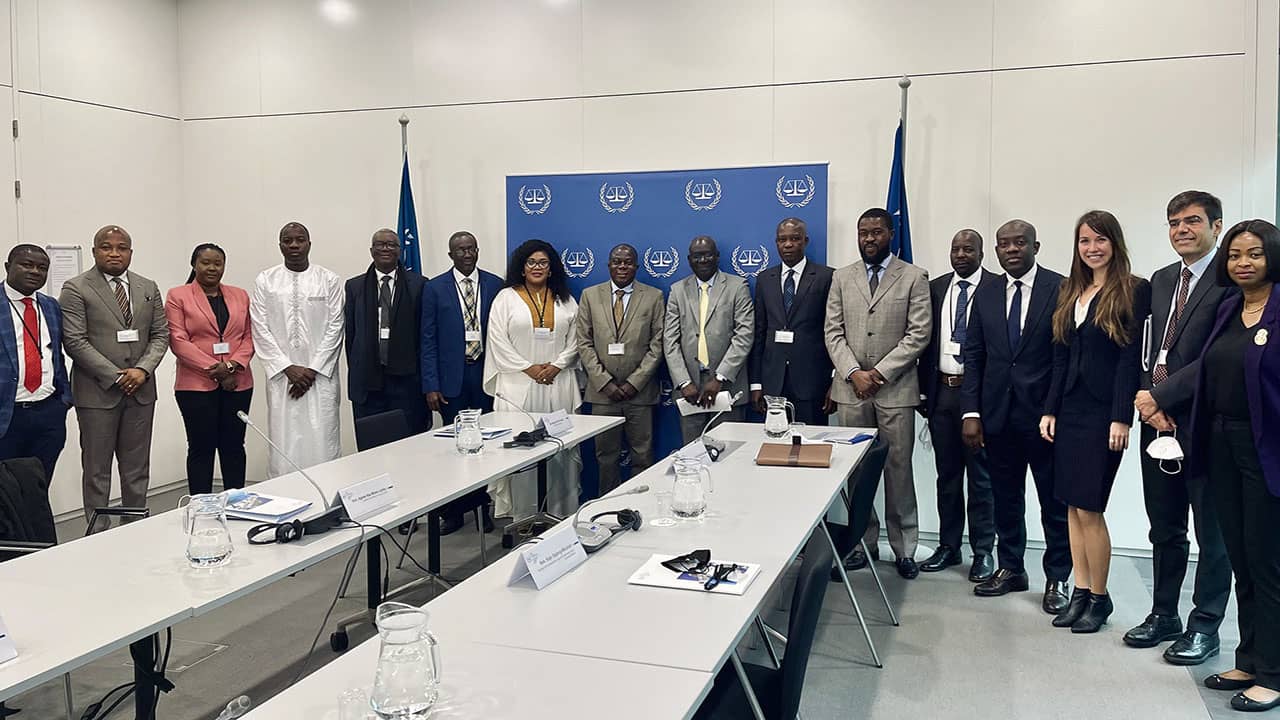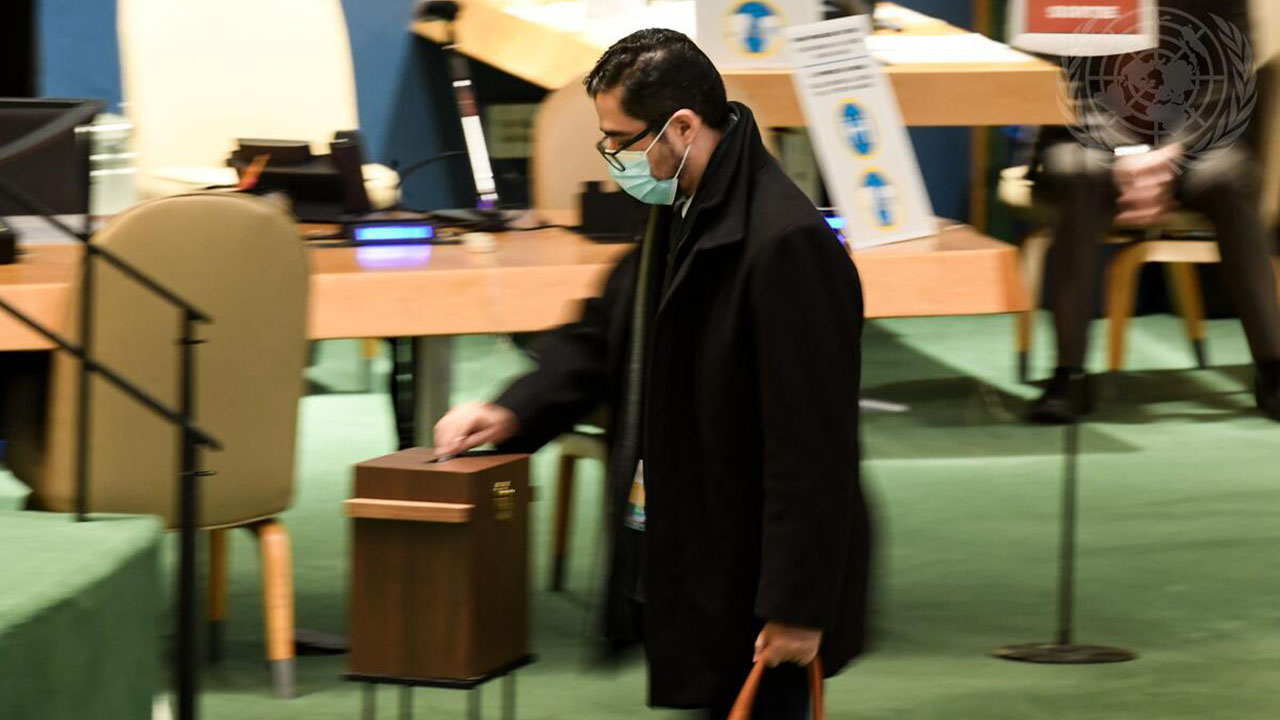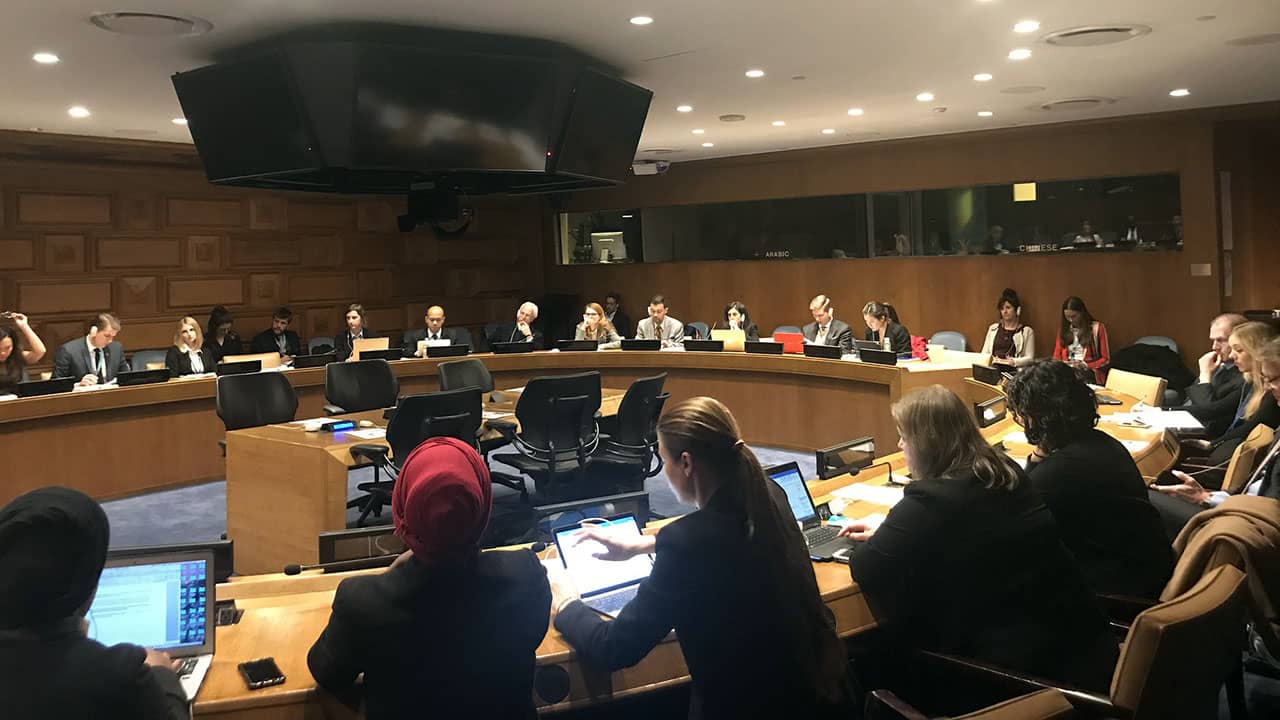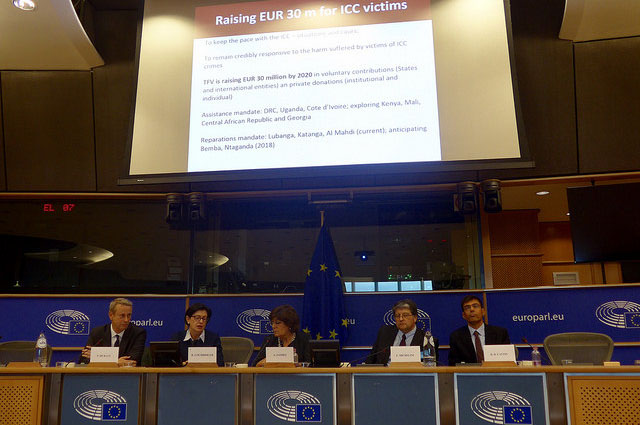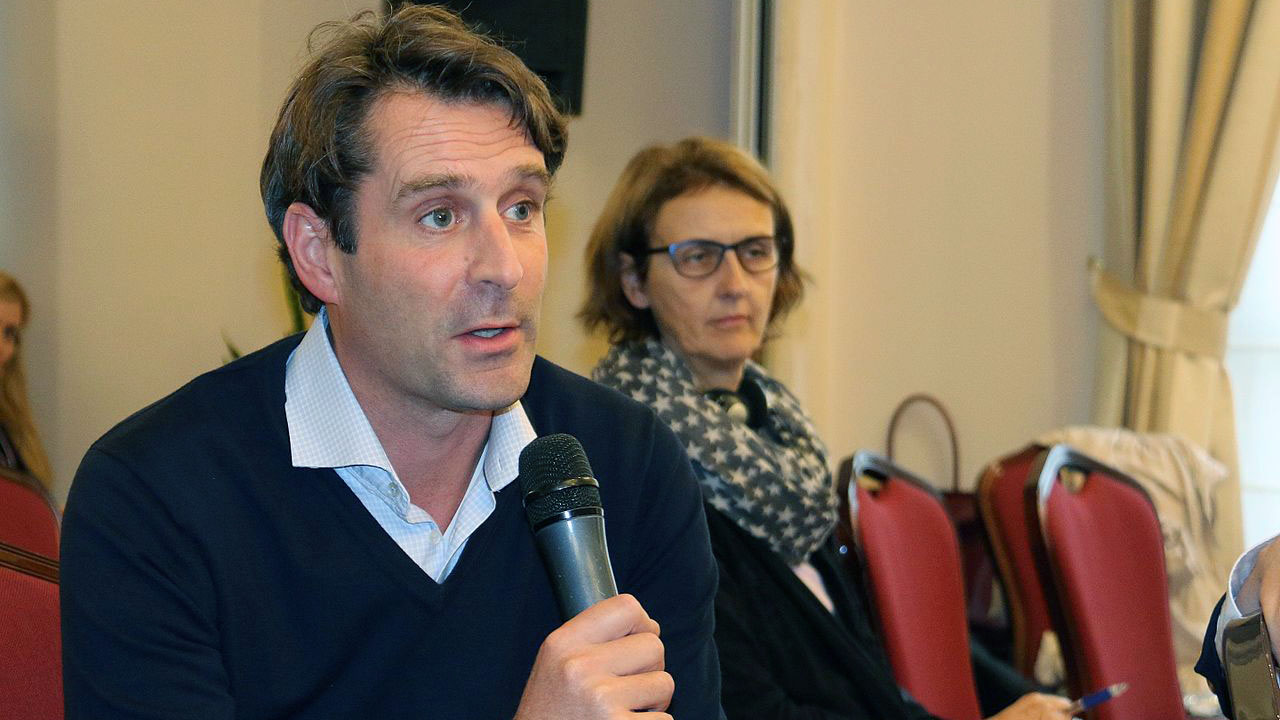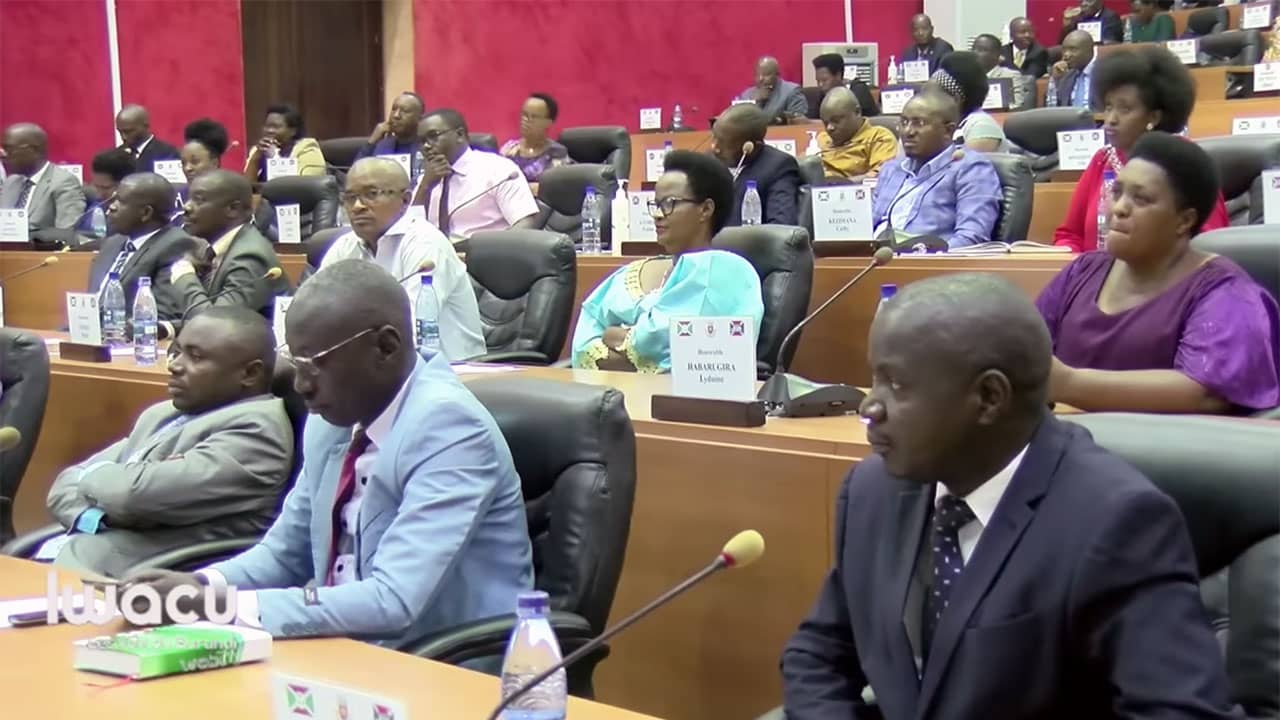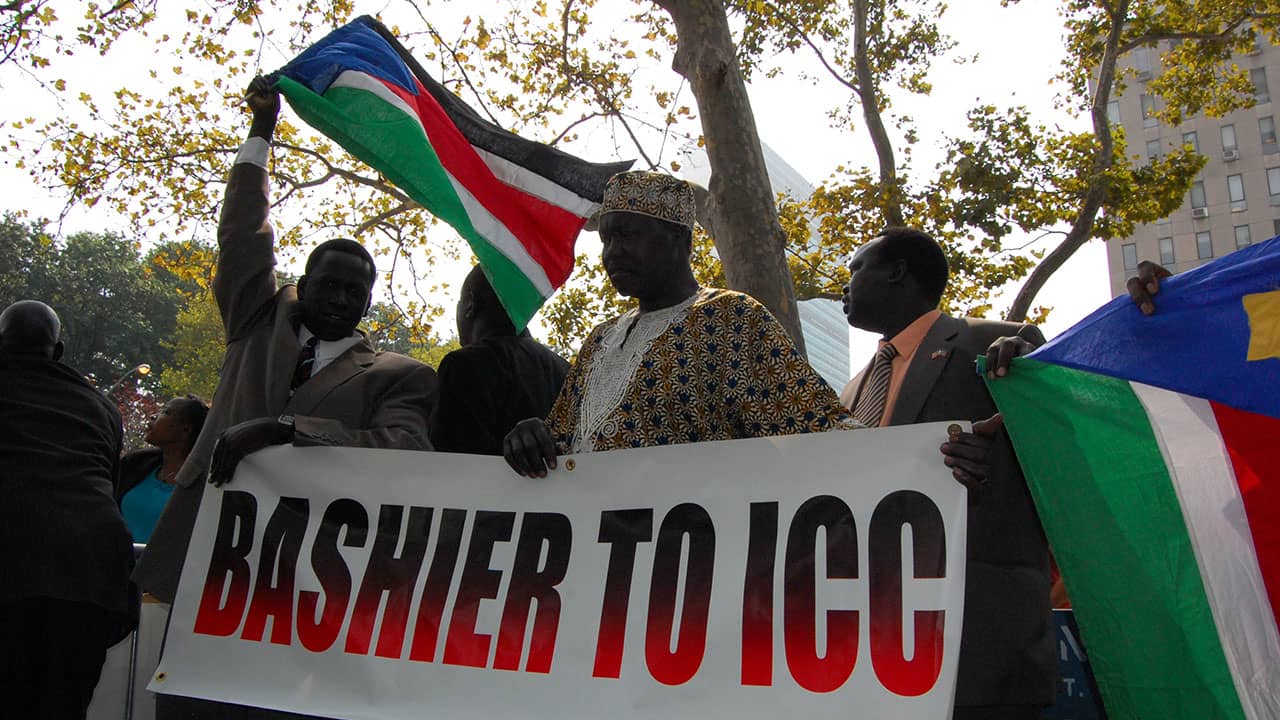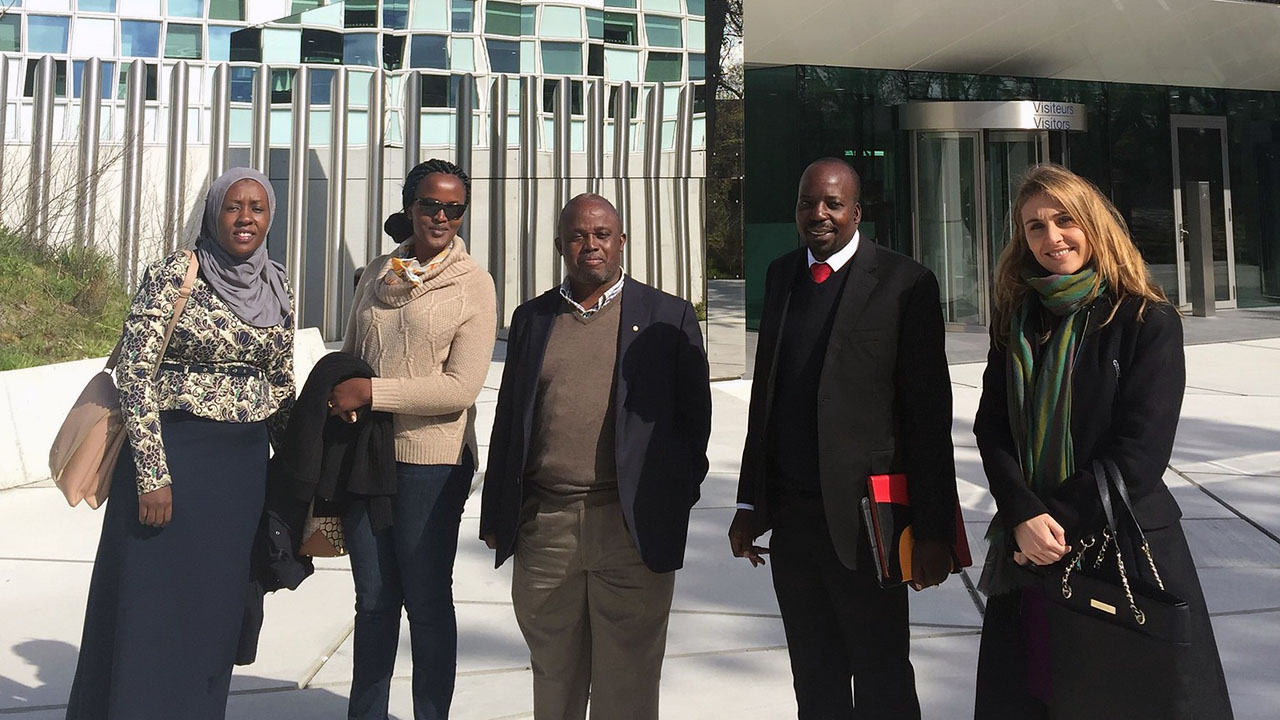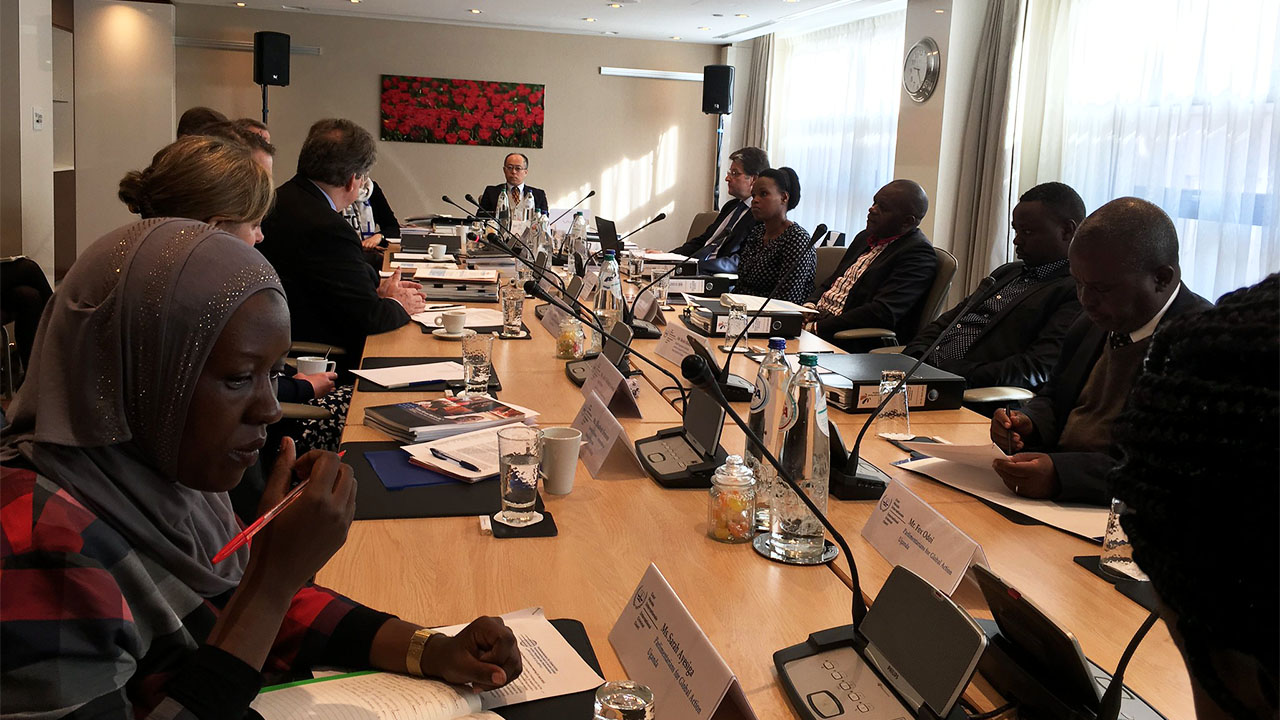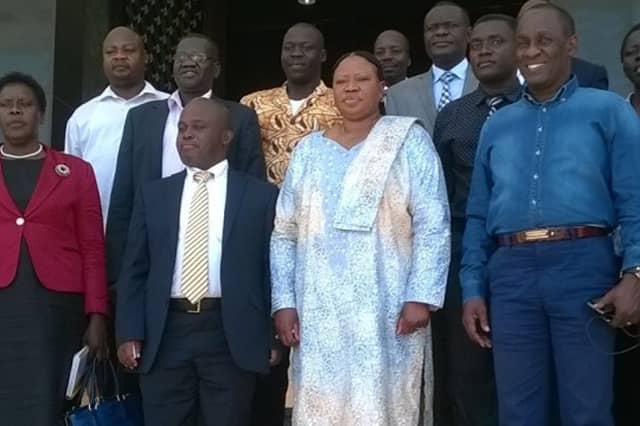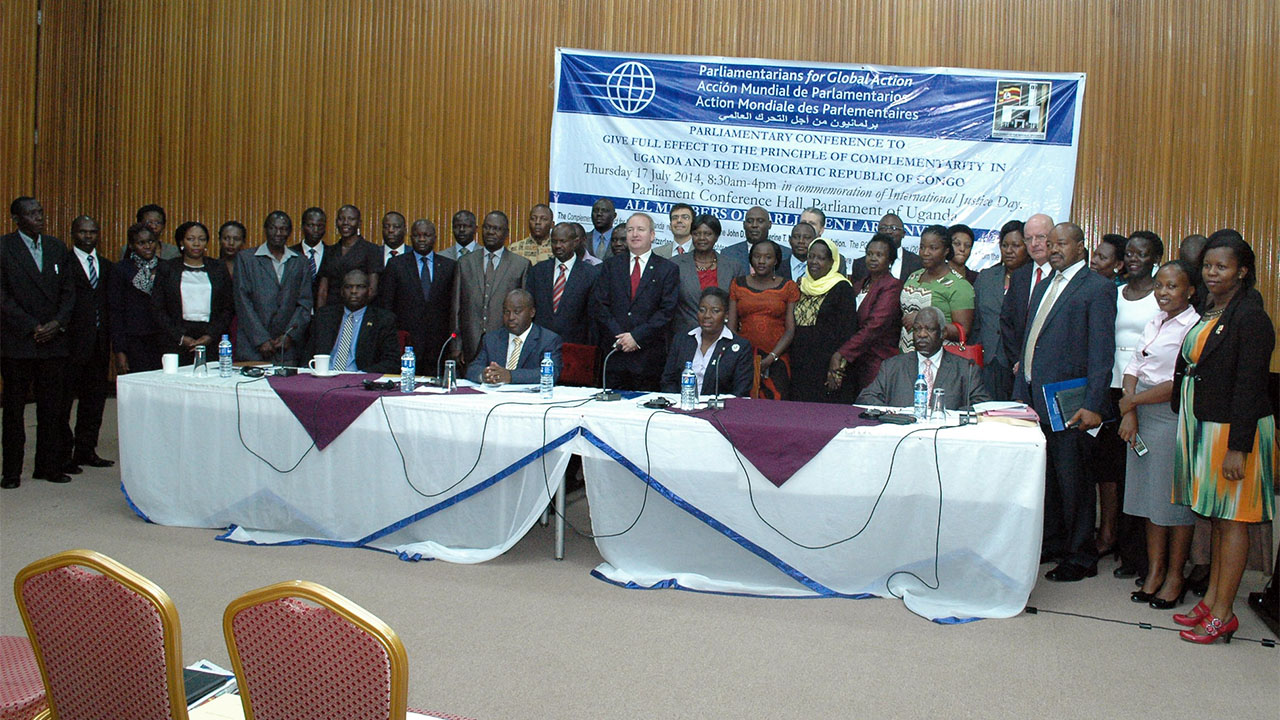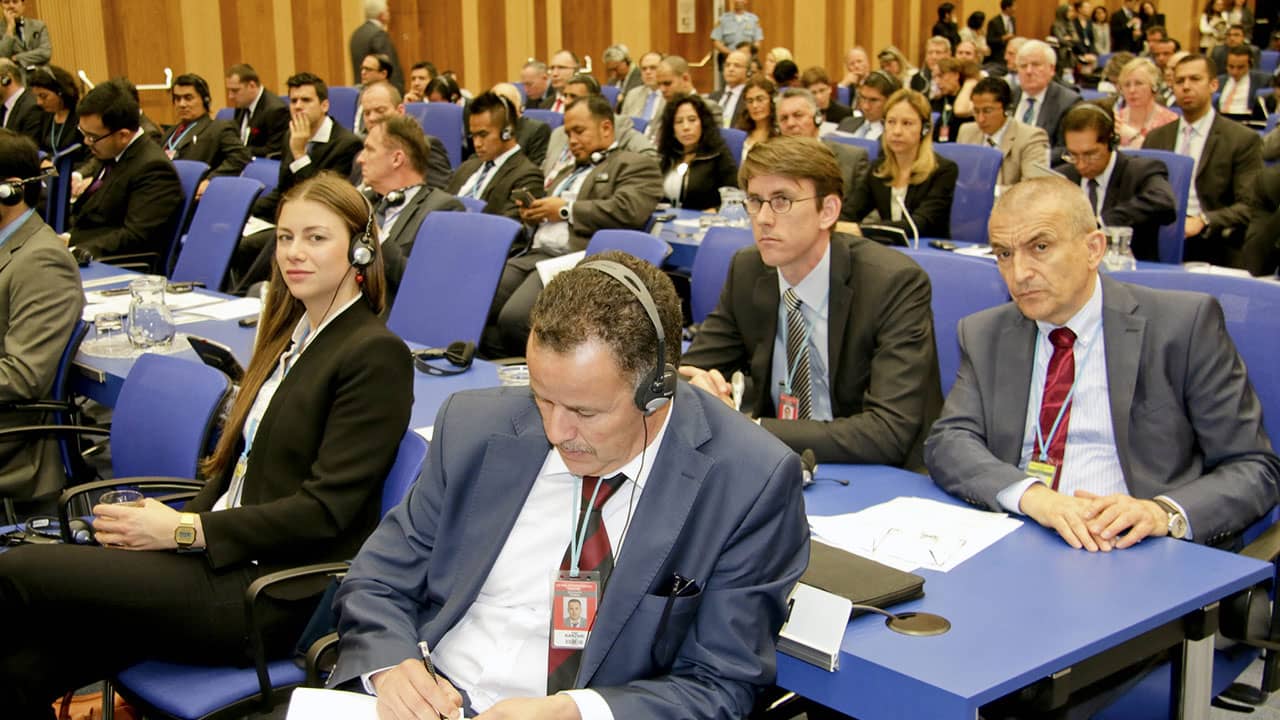Since 2000, PGA has been working in Uganda with a multiparty group, promoting the fight against impunity notably through the ratification and domestic implementation of the Rome Statute of the International Criminal Court (ICC).
Through an official statement in January 2015, the President of Uganda adhered to the thesis of PGA Members in Uganda, as highlighted by Hon. Abdu Katuntu, MP, that the Amnesty Act 2000 (which will expire in May 2015) cannot cover crimes against humanity, which are crimes under international law and not crimes under national law that could fall under the amnesty-authority of the Head of the Executive branch of Goverment.
On April 8, 2015 the Supreme Court of Uganda overturned the September 22, 2011 ruling of the Constitutional Court, which had put a stay in the proceedings in the case against Kwoyelo, an ex-commander of the Lord's Resistance Army (LRA) and had pronounced that he be granted amnesty. This means that the crimes with which he is charged, do not fall under those crimes for which amnesty can be granted. Indeed amnesty cannot be applied for international crimes, such as genocide, crimes against humanity or war crimes, because they are not crimes under national Ugandan law, but they are considered crimes under international law. PGA welcomes this ruling which is in line with the view advocated and supported by PGA.
Indeed, in a recent meeting with the Prosecutor of the ICC, PGA Member Hon. Tashobya emphasized that the Amnesty Act 2000 cannot cover crimes against humanity, which are crimes under international law and not crimes under national law that could fall under the amnesty-authority of the Head of the Executive branch of the Government. He furthermore recalled the official statement, the President of Uganda through which he adhered to the thesis of PGA.
As Justice Mike J. Chibita, director of public prosecutions in Uganda recognized during the parliamentary conference organized by PGA on 17 June 2014 that “The Amnesty law in its current form is an impediment to successful prosecution of those most responsible”. By overruling the Constitutional Court’s decision, the Supreme Court recognized Uganda’s international obligations and helped further increase the effectiveness of the ICC system, strengthening the power to conduct domestic prosecutions in line with the principle of complementarity.
In accordance with the principle of complementarity of the Rome Statute the government of Uganda established a special mechanism to try alleged perpetrators of serious crimes. In 2008 the High Court of Uganda establish the War Crimes Division (WCD) to conduct trials of “serious crimes,” including international crimes. Concerns were raised on the ability of the WCD to adequately trial the LRA in accordance with the principle set by the ICC.
In July 2011 the International Crimes Division commenced proceedings against Kwoyelo, its first war crimes trial against an LRA rebel leader. A few months before the opening of the trial Kwoyelo had applied for amnesty under the 2000 Amnesty Act which provides amnesty to all Ugandans who renounce the rebellion against the government of Uganda and meet certain requirements. The defence raised several preliminary objections concerning the constitutionality of the case more precisely on the recognition of Kwoyelo application for amnesty. In their ruling of September 22, 2011, the judges of the Constitutional Court unanimously agreed with the submissions of Kwoyelo’s defence; the court held that Kwoyelo had acquired the legal right to amnesty under the Amnesty Act. The Supreme Court overturned the ruling of the Constitutional Court and as such the trial which was halted in September 2011 at the International Crimes Division of the High Court will resume.
Rome Statute
Uganda, a signatory of the Rome Statute, deposited at the UN its instrument of ratification of the Rome Statute on 14 June 2002, thus becoming one of the first 60 states parties which contributed to the entry into force of the Rome Statute on 1st July 2012.
Kampala Amendments of 2010
Uganda has not yet ratified the Amendments to the Rome Statute adopted by the 2010 Review Conference (Kampala Amendments) on the crime of aggression and on the use of certain weapons in armed conflict not of an international character.
Agreement on Privileges and Immunities of the Court (APIC)
Uganda ratified the APIC on 21 January 2009. PGA Members supported this development as a component of the process to fully implement the Rome Statute standards into National Law and in addition to this process referred above.
Additional Agreements
Uganda has not signed additional agreements of cooperation with the International Criminal Court, even if it entered into an executive agreement to facilitate the ICC investigations regarding the situation in Northern Uganda that the Government referred to the Court as early as in 2003.
Domestic Implementation of the Rome Statute Status
Following extensive efforts of PGA Members in the Parliament of Uganda, the Ugandan ICC Act was adopted unanimously on 10 March 2010. This Act, which entered into force in June 2010, covers both cooperation and complementarity provisions.
Upon request of its membership, PGA is also working on the creation and the reinforcement of political will on complementarity in support of the fight against impunity through genuine domestic investigations and prosecutions, to be coupled with appropriate remedies and reparations for victims and survivors of atrocities. To this effect, PGA provides technical assistance and support to its PGA Members, whose efforts led to the unprecedented unanimous adoption of a comprehensive implementing legislation of the Rome of the Statute in March 2010 (see relevant proceedings in Uganda’s Parliament Hansard). In addition, PGA seeks to enhance the contribution of justice and accountability institutions for the Rule of Law (particularly through the close monitoring of the Amnesty Act) and the realization of victims’ rights in the broader context of post-conflict recovery and stabilization. Finally, PGA is actively working with its membership to ensure cooperation with the ICC, especially regarding the international “law-enforcement” operation to arrest Joseph Kony and other ICC fugitives.
Description of the ICC process and of PGA’s involvement
Although the ICC implementation has been achieved, additional legislation is required to cover the crimes committed before the entry into force of the ICC Act in order to reduce the impunity gap and to provide access to reparations for the victims of international crimes, especially those from Northern Uganda. PGA continues working with Parliamentarians to address impunity and to strenghten the complementarity regime via appropriate allocations and human resources to the International Crimes Division of the High Court of Uganda. In May 2012, PGA staff contributed to the input and mobilisation to ensure that the Amnesty Law of 2000 was not renewed by the Government in respect of alleged perpetrators of Rome Statute crimes (which should be accompanied by a national prosecutorial strategy aimed at safeguarding child-soldiers and former enslaved-children turned adultds from prosecution).
On 10 March 2010, after extensive outreach of PGA Members in the Parliament of Uganda, the Ugandan ICC Act was unanimously adopted by Parliament, enacted by the President of the Republic into law on 25 May 2010 and entered into force on 25 June 2010. PGA was recognised by MPs during the parliamentary debate as one of the leading forces behind this historic adoption, which united all pro and anti-ICC forces in Parliament. The Act contains significant and effective provisions in respect of the definition of Rome Statute crimes and the cooperation with the Court. Furthermore, among the many results achieved by PGA Ugandan Members, it is essential to mention their succesful proposals to remove the death penalty for Rome Statute crimes (in the Cabinet Bills of 2004-06), to safeguard and strenghten the provisions on the non-applicability of immunities in case of a request of arrest and surrender issued by the ICC, and to remove the political-filter of the consent to prosecutions by the Minister for Justice and Constitutional Affairs (the Attorney-General). However, the scope of application of the legislation does not extend to the immunities of the President, as set up by the Constitution, even if constitutional immunities of a sitting President do not constitute a bar to surrender to the ICC. PGA members, among them the Chair of the Legal and Parliamentary Affairs Committee, have played an essential role in the preparation and adoption of the Bill.
Following a consultative process in which also PGA participated (2008-2009) inter alia co-facilitating a pivotal seminar with the Legal and Parliamentary Affairs Committee of Parliament in which ICC Judge Daniel Ntanda Nsereko (Udanda) addressed more than 100 MPs and relevant stakeholders involved in the Juba process, the ICC Bill required several readings before being adopted. PGA Members from majority and opposition repeatedly committed to achieve this result before the first Review Conference of the Rome Statute, to take place in Kampala, from 31 May to 11 June, 2010. On 30 June and 1 July 2009, PGA co-organised with the Ugandan Parliament a plenary session and a Comittee on Legal Affairs discussion on the topic of implementing legislation. These sessions were followed by a PGA meeting on 15 December 2009 in Kampala, where the commitment to complete the relevant law-making process was reaffirmed by top MPs from majority and opposition.
The ICC Bill 2004 was approved by the Congress in first reading only in October 2004 – leadership of PGA, who supported approval and PGA Members served as rapporteurs of the Bill. Following political elections, the same Bill was re-tabled by the Government in 2006. The main obstacle to adopt the Bill was an ambigous policy of the Government of Uganda linked with peace-negotiations with LRA rebels (Juba Talks), the outcome which however included an important chapter on accountability. PGA always reminded all parties in the negotiations that abducted and enslaved children are not perpetrators but victims of Rome Statute crimes, and that no amnesty may be applied to those who voluntarily and intentionally perpetrated the most serious crimes of international concern.
About PGA Membership and local support in Uganda
The PGA-Uganda group is a multiparty group of approx. 25 parliamentarians. The PGA Uganda national group is one of the most active national groups of PGA. Through this group, PGA has realized numerous strategic activities and actions in Uganda and abroad, designed to bring about the political will of Ugandan MPs in support of the prevention of international crimes under the Rome Statute of the ICC and the fight against impunity through genuine domestic investigations and prosecutions.
Ugandan MPs participated in several sessions of PGA’s Consultative Assembly of Parliamentarians for the ICC and the Rule of Law: I session in Ottawa (2002), II session in New York (2003), III session in Wellington (2004), VI session in Kampala (2010) and VII session in Rome (2012).
Since 2013, PGA benefits from the expert-collaboration of Ms. Joyce Freda Apyo, who will be working with the PGA Ugandan and Kenyan membership and the partners of the Campaign for the Rome Statute of the ICC.
ICC Investigations
-
On 17 January 2015, Dominic Ongwen was transferred to the ICC's custody.
-
On 7 January 2015, Dominic Ongwen, deputy commander to LRA chief, Joseph Kony, was arrested and taken into custody by US forces (click here to read PGA’s official Press Release). He is expected to be transferred shortly to the International Criminal Court.
-
The LRA is still actively pursuing violent attacks against civilians in remote areas of north-eastern DRC, south-western Central African Republic and eastern South-Sudan.
-
Vincent Otti and Raska Lukwiya have been reported killed in combat. Joseph Kony and Okot Odhiambo remain at large.
-
In 2005, arrest warrants were issued against 5 leaders of the militia called the Lord’s Resistance Army (LRA). Main charges include crimes against humanity of enslavement, murder, torture, rape and the war crime of enlistment and use of child soldiers.
-
Updated as of January 2015. For more information on the ICC operations in the situation of Uganda, consult the ICC official website.
Other Relevant Information
Universal Periodic Review - Human Rights Council:
Uganda will be reviewed during the 26th session of the UPR in 2016.
African, Caribbean and Pacific community
As a member of the African, Caribbean and Pacific community (ACP), and as signatory of the revised Cotonou Agreement with of the ACP and European Union, Uganda has recognized the importance of the ICC as a mechanism for peace and international justice, and has committed to promote the ratification and implementation of the Rome Statute, to seek to take steps towards the ratification and the implementation of the Rome Some Statute, and to fight against international crime giving due regard to the Rome Statute. For more information on the work of PGA within the ACP-EU mechanism. See PGA work through the ACP-EU Joint Parliamentary Assembly.
THE COMPLEMENTARITY PROJECT FOR DRC, UGANDA AND KENYA RECEIVES THE SUPPORT OF THE JOHN D. AND CATHERINE T. MACARTHUR FOUNDATION


